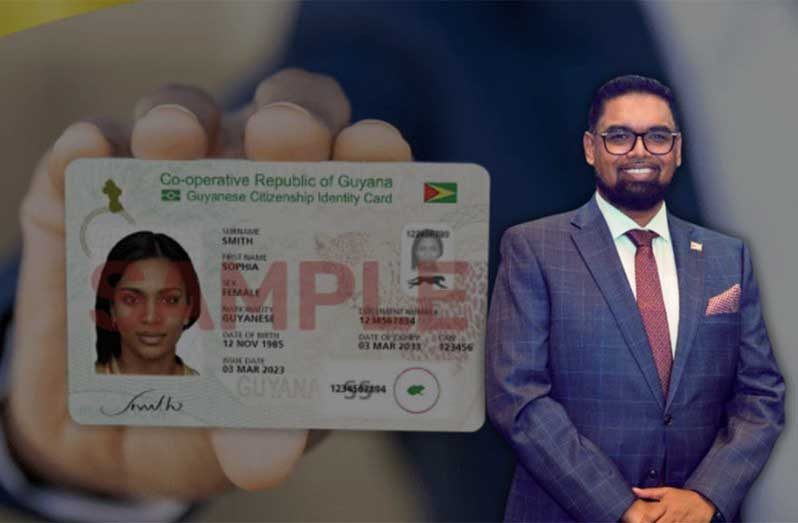WITHIN two weeks’ time, Guyana will begin the large-scale implementation and distribution of the electronic identification system, President Dr. Irfaan Ali has said.
“The programmme will complete the following objectives: provide every citizen with a secure tamper-proof digital identity card and enable trusted digital verification for government and private sector services,” the President said during a Tuesday news conference.
The President also assured that there will be public awareness and education as the government looks to roll out the initiative.
Dr. Ali was the first to receive his E-ID back in August.
The biometric cards will not only offer citizens preferential treatment in certain areas but will also strengthen border control by monitoring who is entering the country.
The cards will be important for daily transactions, including opening bank accounts, and are a critical part of Guyana’s wider digital transformation agenda.
In addition, the E-IDs an online passport application portal, is in the final stage of development and is expected to go live before the end of this year.
This will reduce the need for in-person visits to offices, cutting and eventually eliminating long wait times, and streamlining the process that is currently done manually.
In January, the border control and engage system went live, and has since seen improved security at the airports and border crossings and assured accuracy and reliability in the verification of travel using state-of-the-art technology and rigorous processes aligned with International Civil Aviation Organisation standards.
The government, he noted too, is creating service centres in every region, where citizens can visit, conduct their businesses, and have queries handled within their home regions, eliminating the need to travel to Georgetown for government services.
“We’ll have a decentralised system where appointments are booked online, and you will go to the nearest service centre to you,” President Ali said.
Already, the government has begun the rollout of several innovative technology initiatives aimed at improving access to basic services, which has seen the country heading into a new era with several digital and artificial intelligence-led platforms aimed at improving access to government services and enhancing security.
He also announced too that there has been an appointment of a Chief Technology Officer, who will be supported by the National Data Management Authority (NDMA) to manage the digitisation process and to implement a digital platform to monitor and track key performance indicators for government agencies, ensuring greater transparency, accountability, and efficiency.
He explained that the processes in which citizens would acquire security clearances, birth certificates, passports, and other services are actively being migrated to a digital platform.
Before this week ends, a survey will be conducted to gather data on the current state of digitisation, not only in the government but also across the private sector.
It is expected that in the second quarter of 2026, all government services will be fully digitised.



.jpg)








